Do crows rank among the world's wisest creatures? We don't know, but we know that if you want to keep crows away, you must be ready. You could even need to dress up as a bird. On the other hand, Crows have adapted to living in cities, which has brought along their droppings, nesting material, and nuisance behavior. Now the question is, how to keep crows off your roof?
You can do a few easy things to get rid of crows from your yard or home. Because crows are brave and clever, they may be difficult to deter.
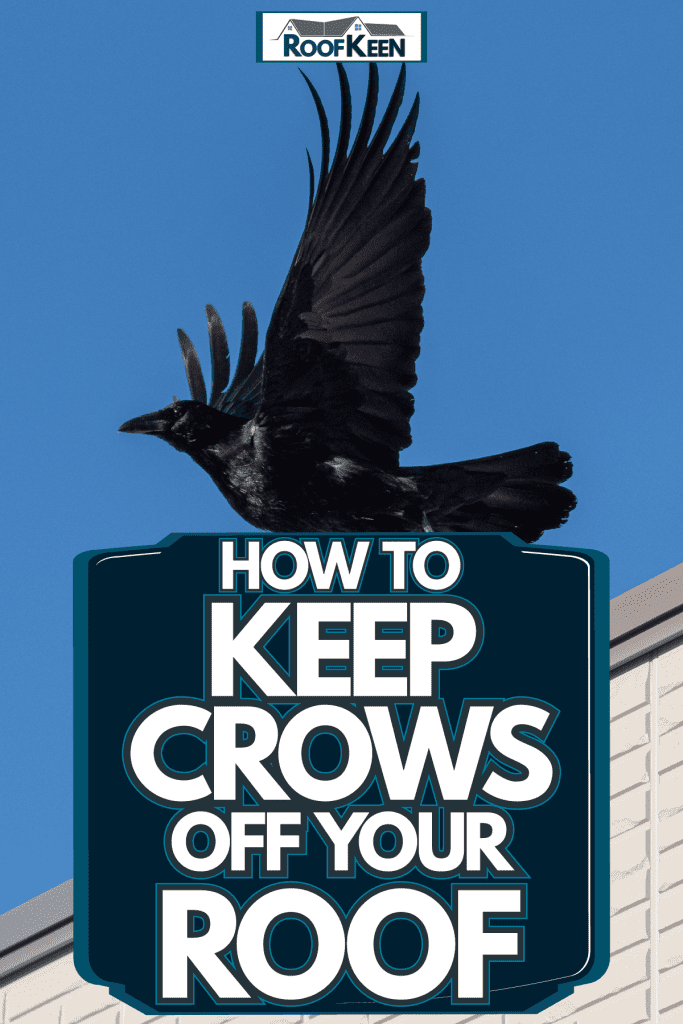
Few Facts About Crows
The best approach to discourage crows is to understand their behavior and biology. Fortunately, we've organized the essential information and highlighted the key facts.
Let's start with some basic biology. Crows are birds from the Corvidae family, which includes about 45 species of medium to large black birds known as crows, ravens, or rooks. The Corvus species are all tiny, round-headed birds with a thin build, a small round head, a sharp conical beak, powerful legs, and a boat-shaped tail. Aside from minor color variations, the most significant difference between species is size.
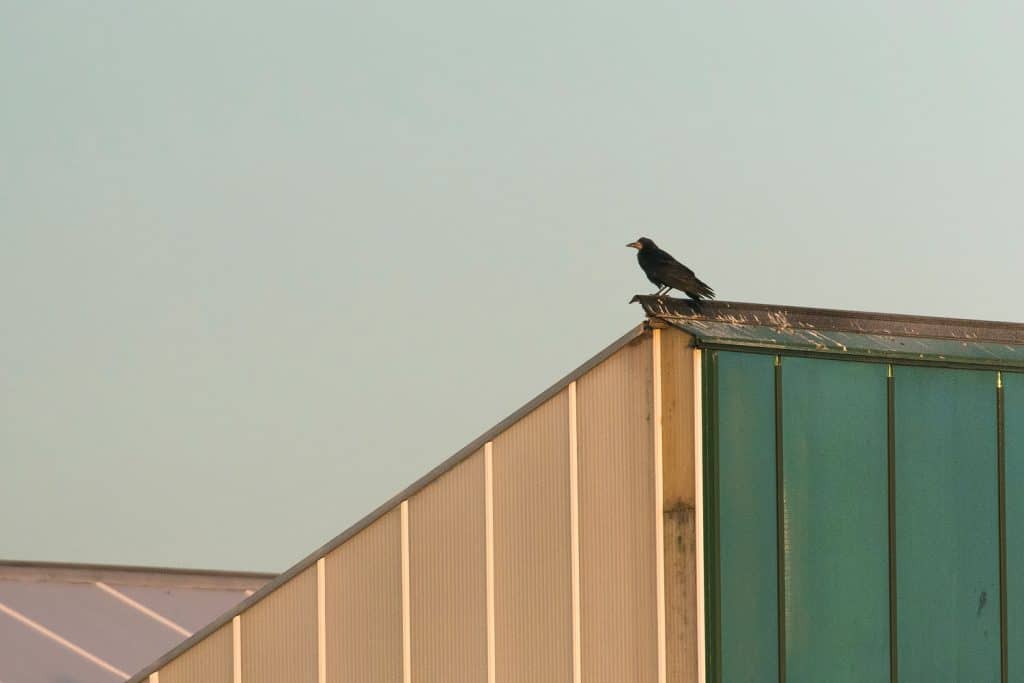
Crows and ravens may be challenging to tell apart because they look identical. However, a crow is considerably smaller all around than a raven; it might be tough to tell which is which if you don't compare them side by side. Flocks of murders are made up of crows who fly together in groups.
What Do They Eat?
Crows are omnivores that will consume almost anything, including fruits, nuts, seeds, mollusks, worms, small animals, eggs, scavenged carrion, and even other crows. Crows can survive almost anywhere because their diet is so varied; you'll find them in residential areas, cities, farms, fields, parks, orchards, forests, and more.
Read more: How to keep buzzards off your roof?
Why There Are So Many Crows?
Crows may be irritating, but they are fascinating creatures to watch. Crows are quiet and secretive when nesting, unlike in other situations when they are noisy and obnoxious. They generally lay their eggs between March and June. The male and female keep guard of the nest and feed the chicks. Families stay together, and the youngsters from the previous year usually assist in raising the new family members. Parents are fiercely protective of their nests and young and will fight to defend them. Flocks numbering in the hundreds or thousands roost together in locations that they return to again each year during the fall and winter. For over 125 years, a roosting crow site in New York has been recording. You've got problems if one of these flocks is on or near your property.
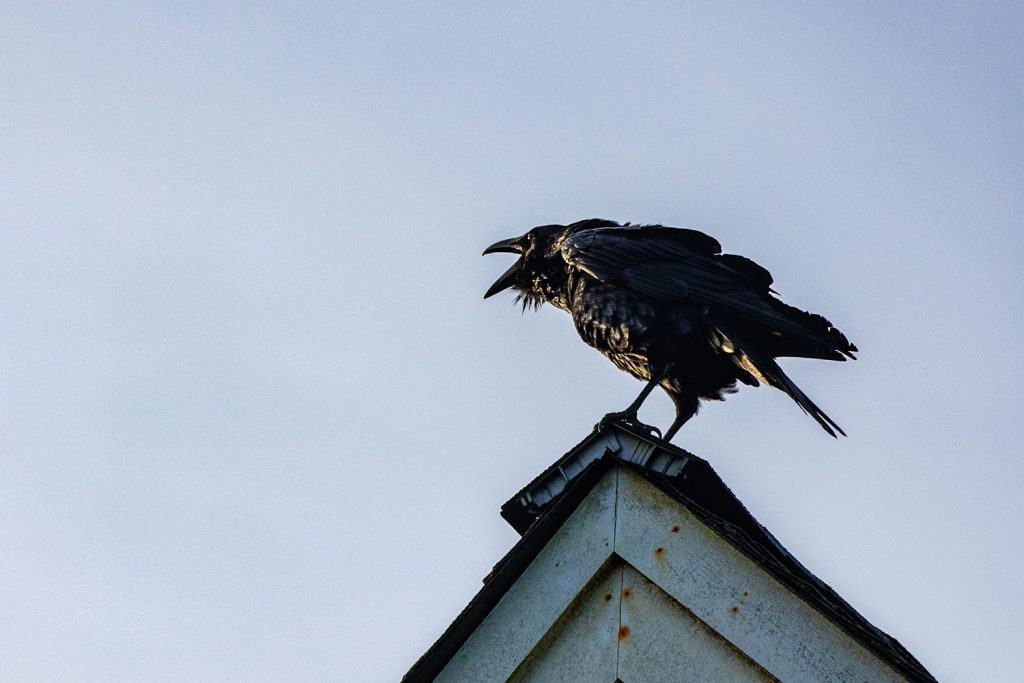
According to a study, crows are also among the world's cleverest animals. Crows have been observed performing the following tasks:
- Using types of tools
- Solving easy puzzles
- Saving food for future
- Playing varieties games
- Giving gifts to each other
- Counting
- Identifying similarities and differences
Crows can distinguish humans as well, which is very alarming. If one crow sees you as a danger, it will keep your image in mind for years and may even target you from a crowd. If you believe a crow is targeting you, you're probably correct. They're also incessant talkers, and they'll inform everyone in their network about you, at which point this close-knit community will combine forces to defend its area against you.
You might want to read: How to keep birds off your roof?
What Types of Problems Crows Bring?
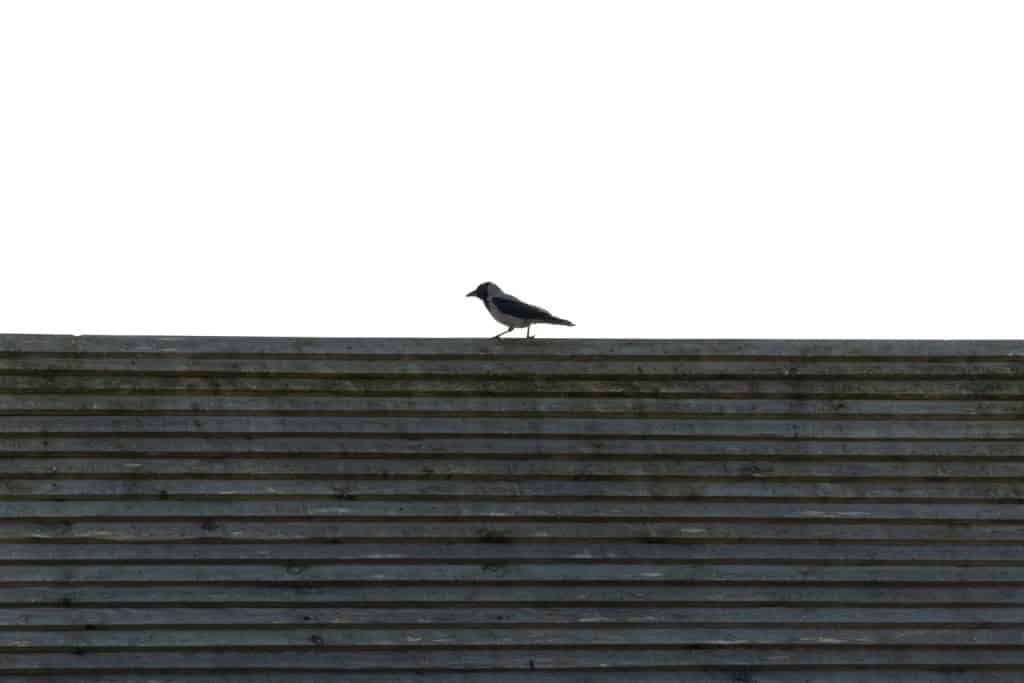
The crow is a pest that targets both people and animals. They are not comparable in their choice of victims, causing trouble wherever they go.
- Cities. With their sharp bills, crows peck at rubber seals on car sunroofs and wiper blades. Roof tiles are damaged. Garbage is strewn about. A crow was observed entering a garbage can, collecting a tossed fast-food wrap, turning the item inside to expose the food, and eating the waste.
- Noise Pollution. Flocks of crows are loud and prolific in their production of harmful droppings.
- Agriculture. Crows will uproot corn seedlings as they emerge. They decimate peanut, sorghum, sunflower, and other types of crops. Their strong beaks are capable of smashing open watermelon shells.
- Livestock. Crow droppings spread transmissible gastroenteritis (TGE) in pig farms. Crows hunt for small animals such as lambs and newborn goats.
How to keep crows off your roof?
1. Yard Cleanup
If you live in a city, keeping your lawn and roof free of anything that could entice crows is important. Ensure there are no foods they may want to eat and no damp spots on your property. Crows are omnivores, which means they'll eat almost everything. It's critical to clean up after barbeques or care for your dogs after the fact.
Because crows want to keep a low profile, they seek out quiet places where no one will notice them. They also avoid roosting in areas that attract humans or other animals who might bother them. Crows don't mind eating food just about anywhere; therefore, this approach may not solve the issue.
- Remove the bird feeder(if you have any)
- Feed your pets indoors
- Always cover compost bins
- Use closed trash cans that are difficult for crows to access.
- Put your tables inside quickly after having outdoor lunch/dinner.
- Post signs that bird feeding is not allowed
- Grubs are a favorite crow meal, so treat lawns and crops for them.
2. Roof Spikes
You may buy little spikes to put on your roof. Despite their complexity, these are difficult to set up. They will make it harder for birds to land on your roof and prevent crows from landing there.
3. Short Term Solutions
These effective crows removal methods may help you get rid of the birds for a while:
- Sprinkle them with water from your hose
- Scare them by making loud noises and clapping your hands at them.
- Throw small things at them to scare them away.
Remember that these techniques will not cure your problem, and the crows will come back. Ensuring that your garden plants are out of reach to the crows and your yard is clean is the most effective way to remove them permanently.
4. Use Use Crow Repellents
Crows hate the smell of peppermint, so keep your garden free of it. Keep cicadas off your tomatoes by planting basil or marigolds around them. If you want to deter rats from chewing on electrical cables, you can use repellents like DEET-based products and peppermint essential oil combined with traps. These methods are
- Crow repellent irritates the crow's eyes, nose, and throat but does not cause any damage. It contains methyl anthranilate (Grape extract), which irritates the crow's eyes, nose, and throat without causing any damage.
- The pouches, which are sold in various shapes and colors, produce an unpleasant scent that should be avoided. They may be attached to outdoor dining areas, porches, entrances, trees, gardens, and other locations discreetly.
5. Call Animal Control
When it comes to dealing with any species of bug, you should start by calling the local or state animal and pest control professionals. Not only will they be able to inform you about any local or state regulations on pests, but many of them will also be happy to assist you with the procedure.
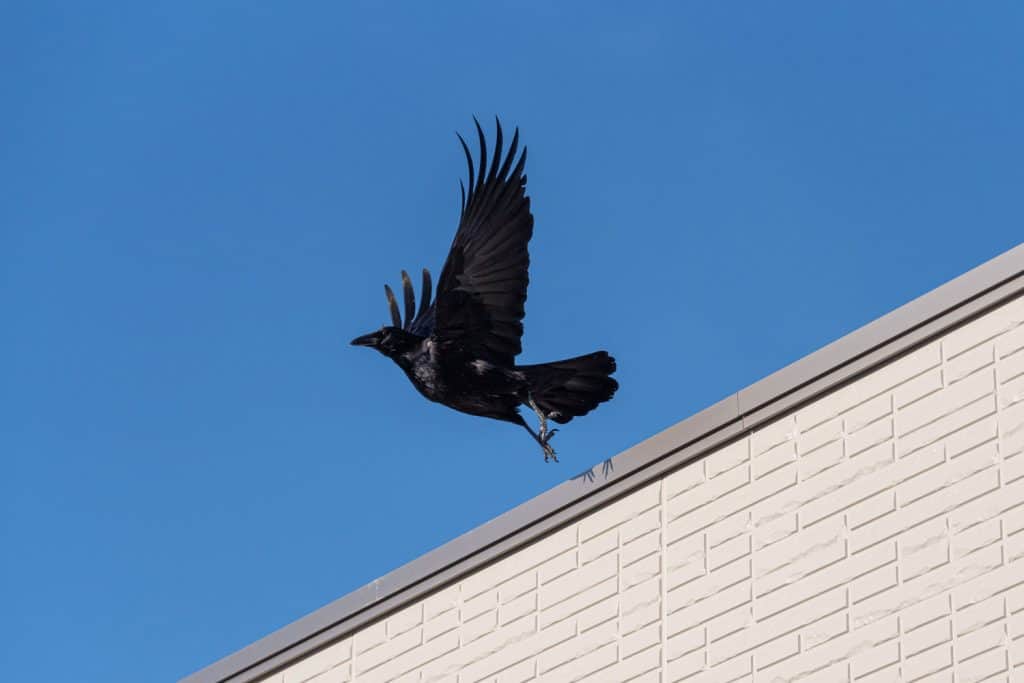
Crows are a tough situation. They are clever, aggressive, and difficult to discourage. They're also dangerous, so there are limitations while the Migratory Bird Act protects them. Contact your local bird control professionals if you're having trouble with a crow problem.
